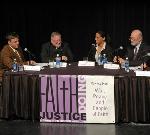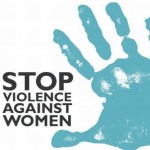Iranian Police Raid and Close Offices of Human Rights Centre Led by Shirin Ebadi

The offices of her Human Rights Defender Center in Tehran were raided and closed by Iranian police today, on order of the judiciary:
In a statement, the judiciary said it had ordered the closure of the Human Rights Defenders Centre in Tehran because it did not have the required legal permits, the Mehr news agency reported.
It had also been “promoting illegal activities such as issuing statements on different occasions, sending letters to domestic and foreign organisations, holding press conferences, meetings and conferences” which created an atmosphere “of media publicity against the establishment in recent years”, the statement added.
An AP article reports that the center was banned last year but had continued to operate. In that article, Ebadi states in that article that her group was planning on Sunday to honor Taqi Rahwani, who was imprisoned for 17 years after the Iranian revolution, and to celebrate the 60th anniversary of Human Rights Day (which passed on December 10th).


